Hello, I Love You, Won't You Tell Me Your Name?
Andrew's (incredible, stupendous, amazing, fantastic) preschool classroom has a self-check-in system in place wherein the children find their name card on the door and by use of sticky back velcro attach it underneath a picture of themselves, thus enabling not only a register of who is in attendance on a given day, but also the added benefit of early letter and name recognition for the child. Cool, huh?
Standing above the child's name on each card is a greeting--hello, to be exact--customized to each according to the language which they speak. For the English speakers 'Hello' graces the tag, except for the tag of the Australian child, whose tag reads 'G'day' (Truth be told, I really wanted Andrew's card to say 'Hey, y'all' but couldn't convince his teachers that the southern vernacular was really his by right)
With new children arriving weekly to his class I sat down with the classroom teachers yesterday to create a list of the new names and the appropriate greetings.
Here then is a small sampling of the ways our class says hello. (Thank goodness for Google search with a task like this.)
Hungary: Szia
German: Guten Tag
Dutch: Dag
Marathi: Namaskar
Spanish: Hola
Mhroroi: Shona
French: Bonjour
So, lay it on me. Add to the knowledge base here. How do you say hello?

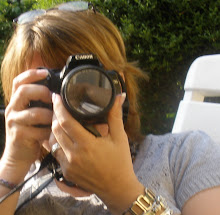







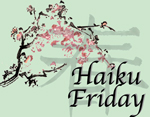


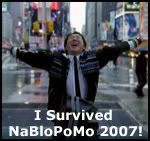



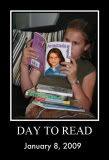
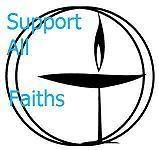


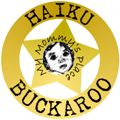


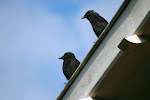

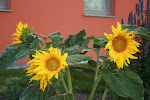

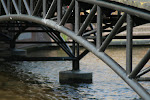
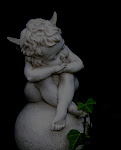





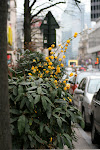
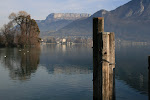

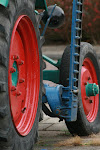




"Hey, y'all" works for me!
ReplyDeleteWell, being English, obviously I say 'What ho!' (But not in an insulting way, obviously...)
ReplyDeleteeummm I alternate "Hey", "Yow (de mannen)", "Hallo" but I suppose that's pretty informal and rather international.
ReplyDeleteHi, ya'll, but I should be saying Hallo now. FOund you via expat women!
ReplyDelete"Hallo" goes for all occasions doesn't it? I'd say "goeiendag" (imagine a Achterhoeks accent) or "hoi". Even more than in America accents and dialects can pinpoint the very city/village someone is from. Or in the words of Lange Frans (you know, the rapper) "het land waar je doorheen rijdt in drie uurtjes, met een ander dialect elke tien minuutjes."
ReplyDeleteIn my part of the world there is this unfortunately tendency to greet someone with "How ya' doing?" but not really wait for or want a reply. I don't like that.
ReplyDeleteMy two years in New Orleans made me appreciate the very deliberate "gu morrrnin'". I've been trying to figure out how to capture the sound and that is the best I can come up with.
Great idea for a post. I love it.
Hey. Yo. Whassup?
ReplyDeleteDag. Tot ziens, y'all.
Hey there!
ReplyDeleteI love your list. I never even knew there were languages such as Marathi and Mhroroi.
After visiting your blog, I always leave feeling like a better (or better-educated) person. Thanks!
anno-
ReplyDeleteI can't boast to have known the existence of those particular languages either!
Mhoroi is a language of Zimbabwe and Marathi is one of the Indian languages.
diane mandy-
Welcome new reader! Always glad to meet a new friend!
anneke-
Yeah, I suppose 'hallo' covers most any of the situations, but I think you can certainly say this is different a couple of generations back, when it was more to be expected to use the greeting based on time of day, yes? As in Goedemorgen, goedemiddag, and goedavond. Me, I like letting those roll off the tongue...
potty mum-
hahahaha! Not insulting at all!!
What an awesome, rich experience that must be! It really sounds like he's in the best place possible for him. Yay! The only diversity in Blake's preschool class is "who lives on the hill?" and "who doesn't live on the hill." Sigh. We gotta get out of Utah...
ReplyDeleteG'day G'day G'day
ReplyDeleteAs you can tell I'm from Australia, which is very apt for the mention of the word in this post!!
Where is Mrorhoi spoken? I've never even heard of it!
ReplyDeleteWell, it would have helped if I'd read the comments section first! Thanks for the info! ;-)
ReplyDeletelaughing my butt off - The "hello y'all" got me rolling!
ReplyDeleteCome by my place when you have a chance. I have bling. :)
Wow that is about the coolest way to have a class learn how their name is spelled.
ReplyDeleteI say good morning does that count?
I say "hi" or "hello" but now I say "dag" too. Before moving I worked in a daycare and my class was very diverse.
ReplyDeleteItalian- Ciao
Hebrew- Shalom
French- Bonjour
Dutch- Dag
Spanish- Hola
and for a little while we had a girl whose mom was Polish- Dzien dobry
In Filipino, we have no direct translation for hello...but we do either of the following;
ReplyDeleteKumusta! (How are you? - this sounds like the spanish como esta)
Mabuhay! (this is like a cheer...something like Viva!)
My sister uses "Pagi", and I by extension have learned that greeting.
ReplyDelete"Howdy" of course!! And of course the informal Dutch greeting is "Hoi!"
ReplyDeleteI'm a big "howdy" fan when I write a greeting. And in French bonjour is good day, bon noir is good night (hope I spelled that right--been years since I took French).
ReplyDeleteWhat a great way to have the kids start their day at school!
Bon chance--good luck at learning more greetings.
Hello or Hi here...... What a neat thing to do though. (((HUGS)))
ReplyDelete"Howdy" - of course - usually with a "y'all" added. Sometimes, it's just a "Hey" or "'Sup?", but mostly "Howdy".
ReplyDeleteHey, I'm back to hand you your You Make My Day Award
ReplyDeleteWell, since we were all about Chinese New Year at playgroup today, we were saying, "Ni hao," but we don't own it. We were just trying it on for size.
ReplyDeleteI say "Hey," which is also how I start 85% of my sentences. The remaining 15% begin with "well."
in Jerusalem, it's shalom!
ReplyDeleteIn Irish you would say, "Dia duit," which is more like, "How do you do?" or, "Hoigh" which is, "Hi!"
ReplyDeletelove that check in idea ... may have to float that at our day care.
ReplyDeletesadly, my greetings aren't so terribly exciting and usually involve 'hey there', 'hi' or 'hello'.
In Italian it's Ciao!
ReplyDelete